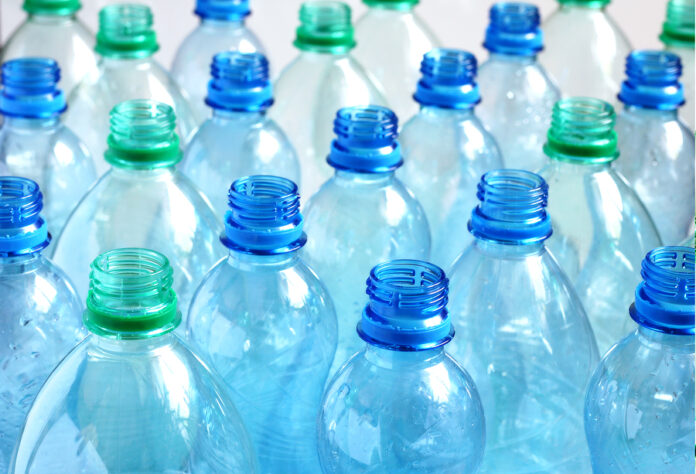
By Gillian Garside-Wight, Consulting Director at Aura
Key Takeaways:
- Collaborative sustainability: Brands, even fierce competitors like Coca-Cola and Pepsi, should consider joining forces to promote Deposit Return Schemes (DRS), creating a unified message that demonstrates industry-wide commitment to recycling and environmental responsibility.
- Regulatory preparedness: Companies must proactively adapt their packaging to comply with emerging Extended Producer Responsibility (EPR) and DRS regulations, ensuring their products are recyclable and meeting new standards to avoid financial penalties and maintain brand reputation.
- Consumer education is critical: Successful implementation of recycling initiatives requires comprehensive communication strategies that not only inform consumers about how to participate in DRS programs but also create ongoing engagement and a sense of shared responsibility for sustainable packaging.
An MIT study recently found that a national Deposit Return Scheme (DRS) would drastically boost recycling. These container-deposit laws, AKA “bottle bills,” are already active in 10 U.S. states including California, Maine, and Michigan. Similar initiatives are taking off around the globe, with the U.K.’s program now potentially going live before 2027 (though now not Wales) and Ireland launching earlier this year.
They present an enormous opportunity for drinks brands in particular, providing a chance for even the bitterest rivals to work together in service of the greater good.
Time to team up?
Specifically, the success of a bottle bill is based on collaboration. Brands will need to work with local governments and collection scheme operators, but in truth this may also be the perfect opportunity for them to work with each other.
Picture a world where deposit returns were the norm globally, with Pepsi and Coca-Cola, two drinks behemoths that are keen to demonstrate their sustainability credentials, combining their might. It makes sense: the purchases have already been made, so they’re not competing for customers. This is the end-of-life of the product and both brands would face the same challenges in communicating the value and need for a DRS.
The power of joining forces – not just for Coca-Cola and Pepsi, but across every brand – is that doing so shows consumers that the bottle bill is the de facto industry standard; not just an initiative developed by one brand on its own.
Brands would share the same messaging and could even share the costs involved in promoting it. Celebrity influencers and endorsers could be used to drive home the message. In addition to talking about how great a drink is, they can communicate what to do with the bottle or can when you’re done with it.
DRS and EPR go hand in hand
There is also a direct correlation between DRS programs and Extended Producer Responsibility (EPR), the new standards for ensuring producers take responsibility for their packaging until the end of its useful life, with fees and fines for producers (in some cases where eco-modulation exists, these are determined by recyclability and the inclusion of recycled content). EPR is currently coming into force across North America, Europe, and beyond.
States looking to approve EPR regulations are likely to be interested in bottle bills (and vice versa) because they are designed to increase the rates of recycling, while Bottle Bill programs result in an increased quantity of post-consumer recyclate (PCR) – the highly sought-after material needed to create more responsible packaging, which ideally should also be recyclable. One feeds into the other.
That is vital because the best EPR laws are eco-modulated, so producers that use more recyclable packaging face lower charges.
With more types of recycled packaging materials becoming available, expect an increase in regulations, incentives, and subsidies. Plus, of course, interest in bottle bills in a particular state or country are an indicator of consumer interest in recycling more broadly.
What does this mean for CPG brands and retailers?
That puts the onus on brands to ensure their packaging and products are bottle-bill-eligible. That can mean anything from ensuring bottles are compatible in material and format, to using the correct labels. Everything from labeling to the color of the bottle cap – and the tethered caps that are now mandatory on plastic drinks bottles sold in the EU – will need to be designed to ease the collection process.
Drinks manufacturers looking to sell in states and countries with DRS programs will need to prepare accordingly. There is a cost involved, but the cost of non-compliance may be far higher – not just in terms of EPR charges, but in terms of brand reputation and perception among an increasingly sustainability-conscious consumer base.
Any solution will also require communication strategies to encourage a change of consumer behavior. Both EPR and bottle bill regulations work better in areas where consumers are already recycling their waste and packaging, but further encouragement and education are vital to ensure the initiative’s future success.
Brands will need to educate consumers on how to use the relevant DRS program – and if their bottle or can is not bottle-bill-compliant, they need to say so clearly as the machines won’t accept them.
They should also consider how they encourage consumers to return those DRS-compliant containers, even beyond the financial incentives. How do they avoid complacency and keep the redemption incentive engaging after the initial burst of interest? They need to educate and inform and help to create a chain of responsibility.
To make accurate, trustworthy on-pack claims, brands need to join forces to educate consumers to close the loop on packaging recyclability. To reduce consumer confusion and enhance credibility, they need to communicate accurate recycling instructions using technology to do so at scale.
Education is paramount to promoting responsible information direct to consumers. Dynamic labels on packaging will allow end users to dispose of packaging by the correct route relevant to their ZIP code.
And if brands can join up with a fierce competitor to help drive home the message, showing consumers that the future of our planet is more important than their rivalry, that is even better.
 Gill leads Aura’s consulting offer, with over 25 years’ experience in the packaging industry, strategically developing packaging strategies, roadmaps, and packaging solutions to meet the needs of clients, consumers, and the planet. She has worked with many global retailers and household brands on projects spanning sustainability and innovation to supply chain optimization. With a real passion for sustainability, her quest is to educate, influence, and drive a circular economy wherever possible while complementing creativity, technical functionality, and commercial realities.
Gill leads Aura’s consulting offer, with over 25 years’ experience in the packaging industry, strategically developing packaging strategies, roadmaps, and packaging solutions to meet the needs of clients, consumers, and the planet. She has worked with many global retailers and household brands on projects spanning sustainability and innovation to supply chain optimization. With a real passion for sustainability, her quest is to educate, influence, and drive a circular economy wherever possible while complementing creativity, technical functionality, and commercial realities.




![[Webinar] The Invisible Plant Tax: Why Proactive, Collaborative Execution Drives Food Safety and Performance](https://foodindustryexecutive.com/wp-content/uploads/2026/02/SafetyChain-The-Invisible-Plant-Tax-Why-Proactive-Collaborative-Execution-Drives-Food-Safety-and-Performance-218x150.png)

![[Business Case Builder] The High Cost of Doing Nothing](https://foodindustryexecutive.com/wp-content/uploads/2026/03/The-High-Cost-of-Doing-Nothing-ERP-Modernization-Business-Case-Builder-324x160.png)